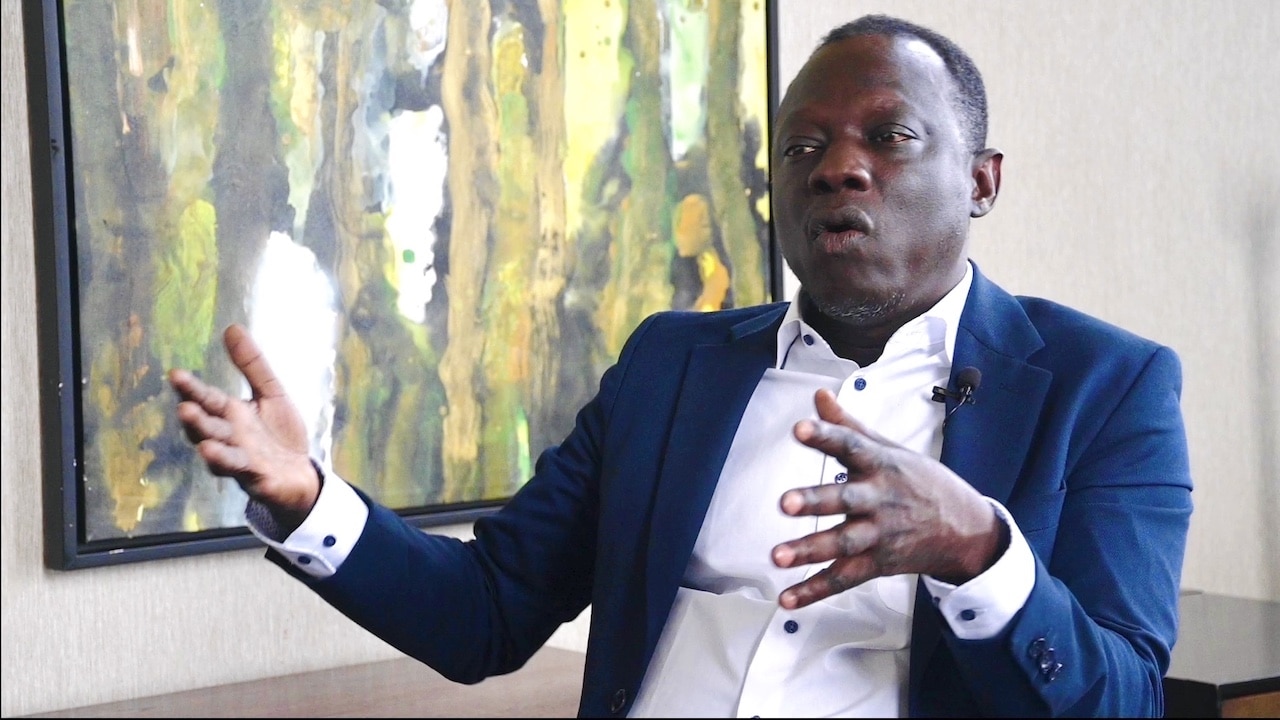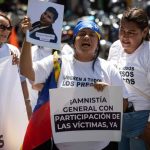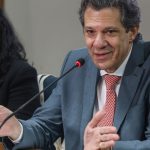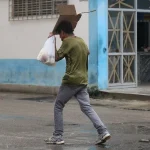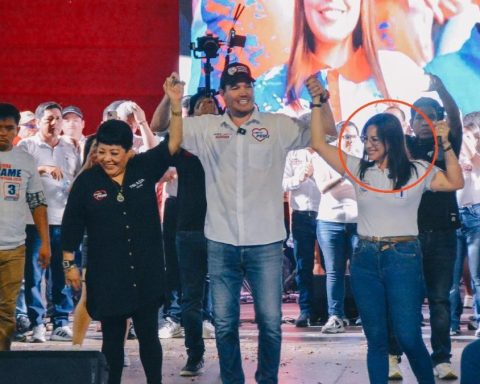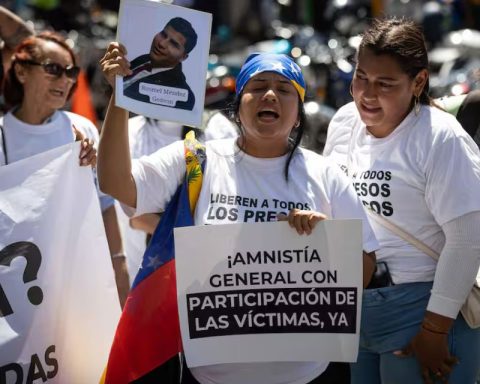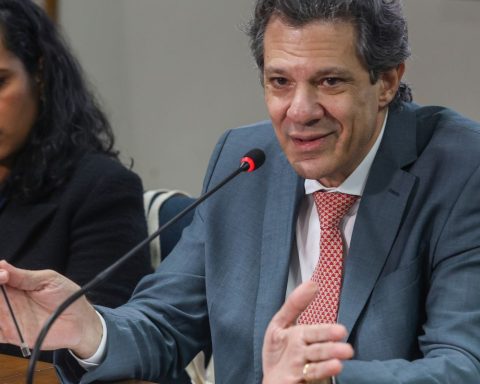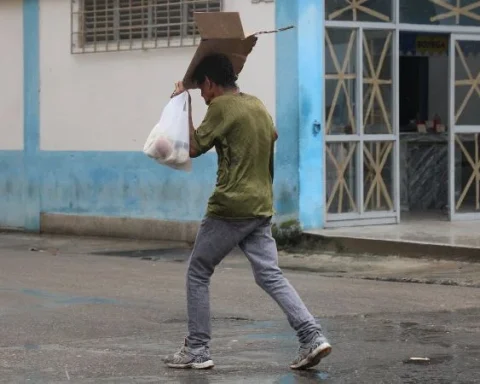The United Nations Special Rapporteur on the rights to freedom of peaceful assembly and association, Clément Nyaletsossi Voule, is resolute in stating that he has not seen in the entire world, in his experience as a UN official, a case like that of Nicaragua, where Daniel Ortega and Rosario Murillo have closed, to date, more than 1,800 civil society organizations, in just four years.
In interview with CONFIDENTIAL and the program Tonight, Voule expresses his great concern for the loss implied by this massive closure of entities whose role is essential in the efforts to achieve the Sustainable Development Goals set by the UN to eradicate poverty, protect the planet and ensure prosperity for all people. “We will see the increase in injustice, the increase in marginalization, the increase in inequality, but also the increase in stigmatization within society”, says the UN rapporteur, about the consequences that Nicaragua will face as a result of the onslaught of the regime of Daniel Ortega and Rosario Murillo against the NGOs.
Voule also assures that a de facto police state, like the one imposed by Daniel Ortega since September 2018, is not sustainable over time or permanently. It also reiterates its request to the rulers to open the country to international scrutiny, to allow members of international human rights organizations to enter. The UN rapporteur to Daniel Ortega who “noOr is it enough to keep telling the international community that everything is perfect when we see people leaving the country. If everything is perfect, then let us go and see.”
Last July you and other UN expert rapporteurs signed a letter addressed to the Nicaraguan government expressing their concern about the cancellation of civil society organizationsdid you get any response?
No, we have not received any response and we are still waiting. We look forward to receiving a response from the State.
What is your intention with this letter?
This letter intends to raise our concern regarding the continued closure of organizations, but also to reiterate, again, the concern we raised in 2020 regarding the adoption of the Foreign Agents Law, which together with the new law (General Law of Regulation and Control of Nonprofit Organizations), is really having an impact on civic space at the local level.
And we also mentioned in this letter, issues that we think should be considered by the country to protect civic space. Because, as you know, we have been engaged with the country since 2018, raising our concern regarding the closure of political space and civic space in general, but also the tension of political leaders and these two laws only put the country in a situation in which there is no more civic space, there is no more space for political activity, for civil society to operate peacefully.
The government has arbitrarily closed more than 1,800 organizations so far. What effect does the disappearance of this number of non-profit organizations for health, education, culture, and humanitarian assistance have on societies?
The impact is huge. Let me reiterate here, again, that civil society is an essential component of society. And the work carried out by civil society is necessary, it is important for the victims, for the vulnerable groups, for the marginalized groups. And we always say that there is no state in this world that can overcome inequality and injustice in the country without the participation of civil society.
By closing these organizations, the country exposes itself to or is preventing itself from achieving the 2020 Sustainable Development Goals Agenda, because these sustainable goals, this 2020 agenda, make it clear that we have to ensure that no one is left behind and the work of civil society is essential to overcome some of these challenges, to ensure that women and the marginalized can receive remedies, that indigenous peoples who see their rights violated have remedies or access to justice, to ensure that vulnerable groups or marginalized communities, where there is no possibility of education, they can also receive support from civil society.
The work of civil society is essential and when that civil society closes down, the impact falls not only on civil society, but on the whole of society. We will see the increase in injustice, the increase in marginalization, the increase in inequality, but also the increase in stigmatization within society.
How do you rate the situation in Nicaragua in the context of Latin America and in the world?
I think that the current situation in Nicaragua is very worrying, and I would not say that it is an exceptional case, but it reaches the level of becoming one of the most critical issues in the closure of civic space in the country, or at least in many countries that I have visited so far.
We have been concerned in many countries about the restrictive space for civil society, the issue of registration, the issue of repression. But It is really the first time that I see that in a few years so many NGOs are closed. The ones that have been there for many years, operating legally, helping society, one day they just close down because they become illegal due to two laws. And I think this is really worrying, it’s the first time I’ve seen it.
All over the world?
All over the world. As I mentioned, I have a concern with many countries regarding civic space. But it is the first time, really, that I can count this number of NGOs (eliminated) only because of the consequences of this law, of these two laws.
UN Rapporteur on Daniel Ortega and public liberties
In April 2018, when you began your mandate, it was also the beginning of the crisis in Nicaragua, when the government repressed massive protests and imposed a de facto police state. Four years have passed. Is it possible to maintain a police state that prevents all kinds of peaceful assembly and association in the long term and permanently in a country?
Dince four years ago, I have engaged with the country to raise some of the concerns, not only in terms of the closure of civil society, but also in terms of the repression of peaceful protests. And I think that at some point we hoped that the peace negotiations that began in the country would lead to something that could really help alleviate society and advance the creation of a democratic, inclusive and peaceful country.
But, unfortunately, that negotiation did not advance. I don’t see how a country can sustain using this practice, and completely push its citizens into exile, put in their brains the idea of leaving the country and also of living in so many communities without any support. And I don’t see that this can be sustainable.
And that is why it is important to continue insisting that the Nicaraguan government has to open the country to international scrutiny. Nicaragua is part of the international community, and they must respect certain principles, and they must not refuse international scrutiny. They must open their border to the High Commissioner (of Human Rights of the UN), to the special rapporteur, to the Inter-American Commission. We are there to help these countries get ahead and overcome their challenges. And Nicaragua should not be the exception.
How do you assess the impact of the massive forced displacement of Nicaraguans to Costa Rica, the United States and other countries?
It is unfortunate. And we continue to reiterate that this is a complete violation of the fundamental freedom of migrants, and we should put an end to it. I call on other countries, other states, to also ensure that this practice (of expulsion) is rejected.
I think we also have to understand why people are leaving the country and also understand that the restriction of civic space also has an impact in other countries, because other countries also have to deal with migrants. They also have to face these challenges. They also need to overcome these challenges.
And recently you asked me how I see the region. This is also one of the challenges, because we are also seeing that, due to the restricted space, due to this real increase in restriction that we are seeing in the region, also we are seeing that many migrants move from the country that became an authoritarian country to the country where there is still freedom for people to express themselves. And this is also causing a lot of damage in terms of migration. That is why the international community must react quickly.
How can societies recover the freedom of association and peaceful assembly curtailed by authoritarian governments?
CI believe that it is the responsibility of any country to protect and ensure that citizens exercise the legitimate rights that they possess and that were ratified by that country. It is Nicaragua’s responsibility, first, to establish at the national level the environment that allows people to exercise these rights.
If this is not done, it is also the responsibility of international mechanisms to ensure that Nicaraguans have access to remedies at the international level, at the regional level, and also to international courts.
When the way for people to exercise their rights, for people to exercise justice, -because justice is becoming a tool in the hands of the Government to repress, and also to condemn the political leader-, when people do not have this access (to justice), people need to turn to the international system. They also have to resort to international courts to have their rights respected.
The repressive escalation has increased in Nicaragua, now there are priests detained and Catholic temples besieged by the Police and government sympathizers. What would your rapporteur say to the Nicaraguan authorities at this time?
CI believe that the recent situation is also another indication of the Government’s policy of completely closing the space, even for the exercise of the right to faith, the right to any kind of freedom in the country. It has reached a level where even the Catholic Church can no longer exercise, cannot even express its point of view on various issues. And I think this is not acceptable.
We have to re-emphasize that the country must open its border to international scrutiny. It is not enough to keep telling the international community that everything is perfect when we see people leaving the country. If everything is perfect, then let us go and see. Let us go and see how we help the country. Let us go, enter and supervise.
